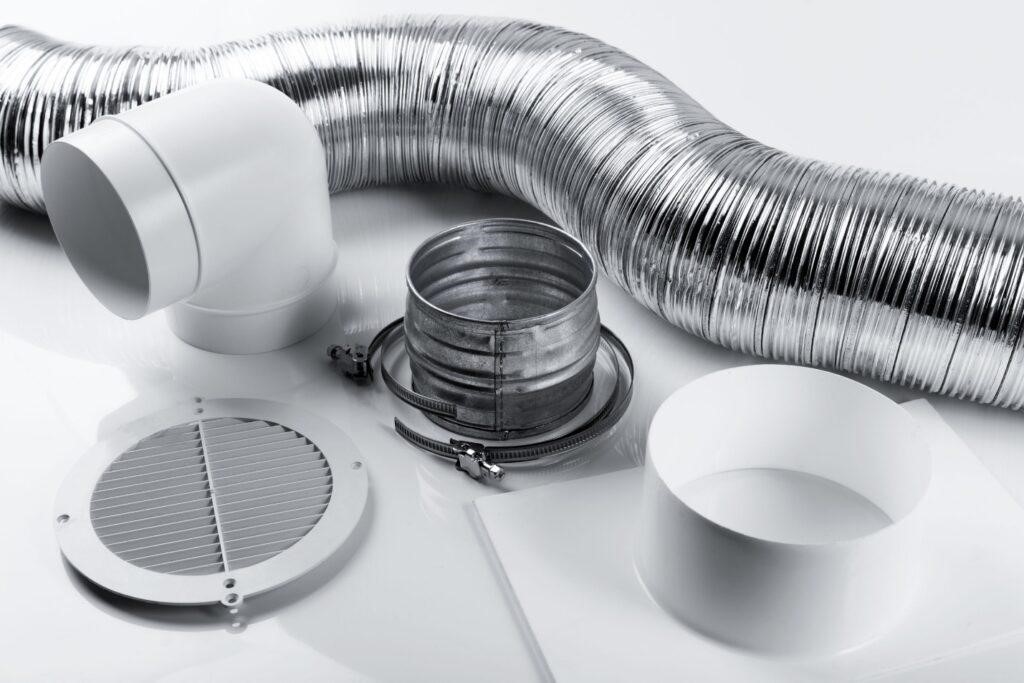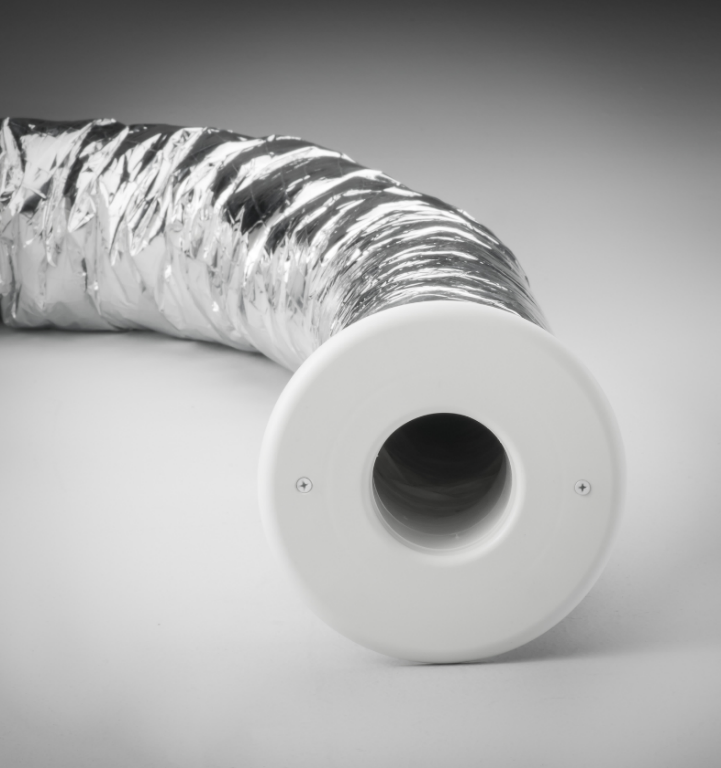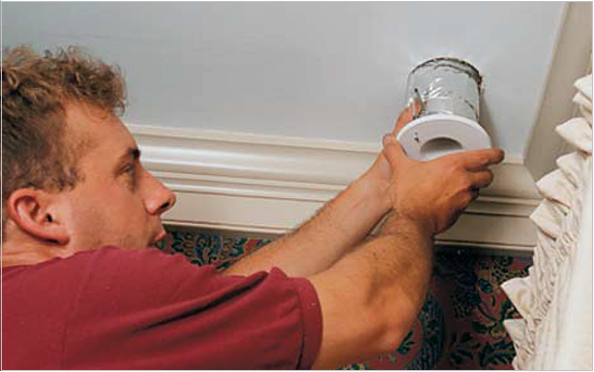Wondering why to consider high velocity air conditioning systems for your HVAC requirements? Well, conventional air conditioning systems are popular for controlling the temperature of a building. They efficiently move the air inside a house and manage the humidity level to a great extent. But they are not always the best choice, particularly when it comes to installation in old homes that have no existing central air conditioning system.
There is a wealth of HVAC system information on the Linquip website, and we try to offer you as much information as possible to help you make a smart decision when selecting a unit for your application. We are hoping that the information you find on this website will be of use to you. Linquip is one of your best options if you have any queries or concerns about HVAC. Linquip has a team of experts who are available at any time to answer any questions you might have about these devices or equipment. Please take a few moments to read Linquip’s article entitled, “HVAC and Refrigeration Systems“.
Linquip is made up of several components that require Linquip Expert registration in order to fully utilize the functionality and benefits of the platform. By creating a Linquip profile, you will be able to showcase your capabilities in a way that is based on industrial equipment. Do you have an interest in writing a guest post that we can publish on Linquip? Is this something you would be willing to contribute to? The Guest Posting section of the Linquip platform gives you the opportunity to upload your content to the Linquip website.
Source: www.homeguides.sfgate.com/
For easily retrofitting this technology to an old building, high velocity AC systems (HVAC) are a better choice than conventional ones. With their small ductwork, they do less damage to the building’s walls. This means the costs of remodeling will decline due to the flexibility of high velocity air conditioning systems.
This new technology is also the perfect solution for new buildings. It changes the temperature of a room faster than conventional AC systems, offers better humidity removal, and consumes less energy.
However, there are some disadvantages to high velocity AC systems that must be considered before making a decision. Continue reading this article to find more details about high velocity air conditioning systems, their installation and maintenance costs, as well as advantages and disadvantages.
What is a High Velocity System?
A high velocity air conditioning system is the reengineered form of conventional air conditioners that creates a faster flow of cool or hot air into a place.
Also referred to as “small-duct”, this new technology is capable of regulating the temperature of a room at an exceptional speed in comparison to the older air conditioning systems.
Source: www.contractingbusiness.com
High velocity AC systems have smaller air handlers as well which are helpful in fitting them into tight spaces in the building. Thanks to their small ducts (tubes with two inches in diameter) and insulated tubing, the system is highly energy efficient, too.
Although it has been said that high velocity air conditioning systems are noisy, most of the sound coming from them is controllable. Click here (Link to noise section) to find out how.
How does High Velocity System Heating Work?
Established as the market’s popular choice, the high velocity system works just like a low velocity air conditioning system. However, there is a big difference here that makes a high velocity air conditioning system more efficient than the old ones. As we mentioned before, the duct work is minimal and there is no need for additional space.
The high velocity AC system operates exactly the same as a shower head. Regardless of the pressure of water in the pipes, the small holes of the shower head produce a high pressure and low velocity stream of water coming out.
The high velocity air conditioner is intelligently designed to produce a high pressure stream of air without consuming much energy. The cool or hot air in the system comes from a heat pump or compressor with a normal pressure. Just before entering the house, the air is led through a high velocity air handler which enables it to come outside of the vents with 4 times more pressure in comparison to ordinary air conditioners.
Source: www.americanvintagehome.com
The higher pressure of air coming out of the vents is optimal for a consistent mixing of the air in the room. No matter where the vents are located, the system will help the flow of air from a high pressure area to a lower pressure one as quickly as possible.
What are Average Costs of High Velocity Air Conditioning Systems?
High velocity air conditioning systems need a special ductwork, therefore their installation costs are higher than conventional air conditioning systems. However, high velocity AC systems are an ideal choice in many cases and here is :
For new construction, high installation costs of high velocity air conditioning systems could be neglected; particularly if you consider the lower costs of utility and maintenance. Compared to conventional AC systems, high velocity air conditioning systems experience 25% less leakage in the ducts which means better utility, more efficiency, and less energy consumption.
By reducing the size of the HVAC systems and equipment, maintenance expenses will decrease as well. This is why high velocity air conditioning systems are an ideal choice for saving money in the long term.
In the case of older buildings, installation costs become more affordable, given the fact that the costs of structural renovations are much lower than installing a conventional AC system with large ducts.
Are High Velocity Air Conditioning Systems Noisy?
Many people believe that high velocity air conditioning systems are noisy. However, this is only possible if the system is not perfectly installed. In some cases, if too much air is pushed through fewer tubes, it consequently makes noise when the high velocity air conditioning system is operating. To reduce the risks of having a noisy AC system, enough tubing and a proper number of outlets is required.
Many installation companies use supplementary equipment to eliminate the sound coming out of the high velocity air conditioning system. Using a damper valve in outlets and insulating the supply tubes is also recommended.
What are the Advantages of High Velocity Air Conditioning Systems?
– Efficient Temperature Controlling: the system is designed for cooling and heating the building better than the conventional air conditioning systems. The small ducts in the system enable the air to enter the place with 4 times more pressure, which is why the temperature movement in a room is managed .
– Less Thermal Loss in the System: The tubes are fully insulated to have less air leakage. Therefore, the level of energy consumption is declined substantially.
– Unique Humidity Removal: due to the high pressure of air coming out of the outlets in a high velocity air conditioning system, the humidity level can be decreased by 30%.
– Easier Installation in Old Buildings: the ductwork needed for high velocity air conditioning systems is much smaller than the conventional ones. All units in the system are versatile enough to be installed in any place, even attics, closets, and basements. This is why high velocity air conditioning systems are a good choice for retrofit.
What are the Disadvantages of High Velocity Air Conditioning Systems?
– Costs of Installation: where there is a need to renovate, installing a high velocity air conditioning system is a cost effective choice. But for new construction projects, purchasing and installing a modern system such as Small-duct may seem expensive. However, for all homeowners, high velocity AC systems can save a lot of money in the long term, particularly in terms of energy consumption.
– Being Noisy and Loud: high velocity AC systems produce noise, mainly because too much air is being pushed through fewer tubes. To solve the problem, installers can use an exterior layer of insulation around ducts to absorb the sound.
– Physical Discomfort: The high pressure air coming powerfully out of the vents may feel physically uncomfortable. To address this problem, it is always recommended to put ducts in a place far from where the resident may stand, sit, or lie.
All benefits considered in this article, high velocity air conditioning systems are ideal for being installed in both old and new buildings. Gentle mixing of the air, a 30% humidity removal, and proper sizing in these new systems have recently resulted in rising demands for HVAC systems. After all, this technology has enough potential with the best indoor air quality.
Download High Velocity Air Conditioning Systems PDF
By clicking on the following link, you will be able to get access to the whole content of the article in a PDF format.
Read More In Linquip
- The 5 Best Air Source Heat pump
- Top Air Conditioner Manufacturers and Companies in the US
- Common Problems with Solar Air Conditioners
- Your Complete Guide to Air Conditioner Replacement Cost
- Benefits of Installing Lennox Air Conditioning
- Difference Between Air-Cooled vs Water-Cooled Compressor
- Advantages of Air Conditioner: Everything You Need to Know
- The Complete Guide To Air Source Heat Pumps Disadvantages
- Installing an Air Source Heat Pump: Everything You Need to Know
- Difference between Refrigeration and Air Conditioning: Comparison
- What Are Air Source Heat Pumps? A Complete Guide
- What Are Air Source Heat Pumps? A Complete Guide
- The Essential Guide to the 4 Types of Air Compressors
- How an Air Conditioners Compressor Work?
- Advantages of Air Conditioner: Everything You Need to Know
- Heat Pumps vs Air Conditioners: The Everlasting Battle
- Discussing Costs and Benefits of High Velocity AC vs. Mini-Split AC Systems






